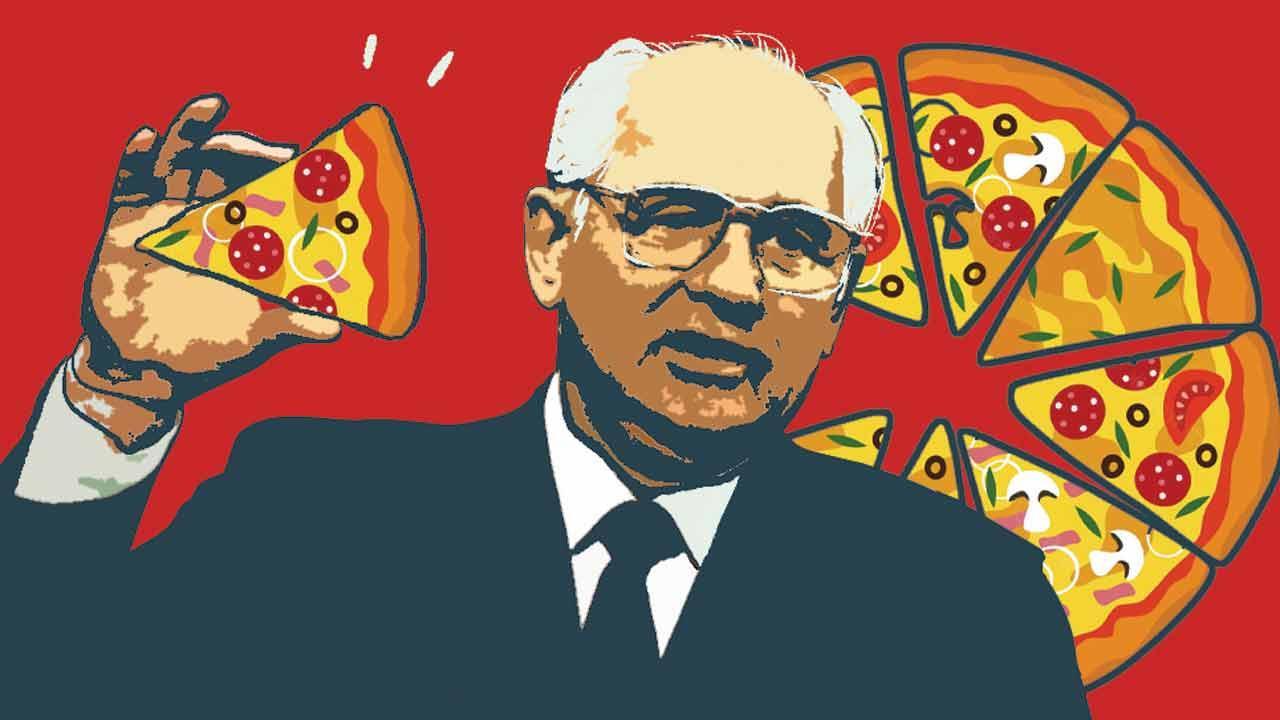Glasnost was even brandished by some young people I know (never said it was me), in arguments with parents

Illustration/Uday Mohite
![]() When news of Mikhail Gorbachev’s death came, many people I know were momentarily disorientated. The befuddlement of “I hadn’t realised he was still alive?” bore testimony to how Gorbachev receded from public memory. Yet, in the 1980s he pervaded political and cultural imagination around the world, and definitely in India. Our Russian vocabulary doubled—adding glasnost and perestroika to vodka and dasvidanya. Glasnost was even brandished by some young people I know (never said it was me), in arguments with parents. Some people named their child Raisa, after the Russian first lady.
When news of Mikhail Gorbachev’s death came, many people I know were momentarily disorientated. The befuddlement of “I hadn’t realised he was still alive?” bore testimony to how Gorbachev receded from public memory. Yet, in the 1980s he pervaded political and cultural imagination around the world, and definitely in India. Our Russian vocabulary doubled—adding glasnost and perestroika to vodka and dasvidanya. Glasnost was even brandished by some young people I know (never said it was me), in arguments with parents. Some people named their child Raisa, after the Russian first lady.
ADVERTISEMENT
Looking back, Gorbachev represented the mid-point of what in filmmaking terms is called a cross-fade. For my generation and those before, the Soviet Union was a proximate sensory reality. In part, it was through the now-nostalgically documented children’s storybooks, Baba Yagas and Mishas in captivating illustrations, full of uncommon colours and shaded wonder. It was also through the centrality of the figure of the child, seen as the citizen of tomorrow. In the storybook, this centrality was through actual child protagonists who had travails and adventures with myriad creatures—animals, witches, occasionally other humans, their emotions and perceptions shaping the narratives and the world-making of the books, a propaganda with room for poetry.
This ‘building a modern nation’ aesthetic and rhetoric etched many Indian spaces too—magazines like Children’s World and spaces like the Doll’s Museum presented a far more granular geography, a differently oriented map of the world, that contoured our imaginations, than we are used to now.
I recently was astounded to discover that an actual friend of mine—a decade older than I—had gone to the USSR on one of those expeditions for (annoyingly) prodigy-type children. I was equally surprised to hear from another friend, a decade younger than I, that she thought Russia was the evil empire, perhaps coloured by American things she grew up with in post-liberalisation India, which made Gorbachev heroic in her imagination. My generation, it seems, sat at that mid-point, which Gorbachev embodied, of this changing moment.
By the time Gorbachev went out of power, India too had begun its liberalisation journey—a chapter when US culture dominated our mental landscape (now giving way to East Asia, primarily South Korea). The world turned, taking Gorbachev with it (some say he helped turn it).
He was idealised for his commitment to peace and freedom of speech by many and critiqued by several for laying the ground for Russia’s current set of crises. Today, we don’t really use terms like world peace quite so sincerely, and to ponder the meaning and history of this skepticism is to reflect on intertwined narratives of neo-liberalism and democracy.
In the forgetfulness about Gorbachev, or in the fact that one of the most remarked on memories of him is his appearance in a Pizza Hut advertisement, perhaps we also see the political implications of the cult of personality, favouring the individual over the collective; a single, somewhat decontextualised story about the world, over the complicated truths of political reality—a precursor to the influencer-leader. We have seen its fickle persuasions in the European orthodoxy of the character driven documentary film and the solutionism of Ted Talks. In the pedestalization and de-pedestalisation of figures like Aung San Su Kyi or the re-pedstalising of fascist personalities closer home.
Paromita Vohra is an award-winning Mumbai-based filmmaker, writer and curator working with fiction and non-fiction. Reach her at paromita.vohra@mid-day.com
 Subscribe today by clicking the link and stay updated with the latest news!" Click here!
Subscribe today by clicking the link and stay updated with the latest news!" Click here!







